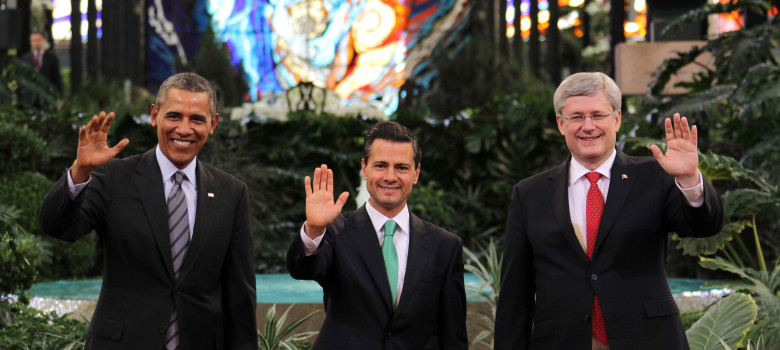An examination of the Trouble with the TPP copyright provisions would not be complete without discussing how Canada reformed its law before entering the negotiations as part of the price of admission to the TPP talks (prior posts include Day 1: US Blocks Balancing Provisions, Day 2: Locking in Digital Locks, Day 3: Copyright Term Extension, Day 4: Copyright Notice and Takedown Rules, Day 5: Rights Holders “Shall” vs. Users “May”). The pre-TPP reforms must surely be considered part of the cost of the agreement even if proponents now argue that the TPP is consistent with (the reformed) Canadian law.
Canada was not an initial participant in the TPP negotiations. The Harper government began working on entry into the TPP in 2009, leading to a formal request for participation in the negotiations in 2011. The U.S. held a consultation on Canada’s proposed entry into the TPP a year later, resulting in the IIPA, the lead lobby group for the movie, music, and software industry, urging the U.S. government to keep Canada out of the negotiations until a copyright bill was passed that satisfied U.S. expectations. The Canadian government responded by promising to pass the law and noting that it had also signed the Anti-Counterfeiting Trade Agreement (ACTA). The U.S. demands had an enormous impact on the contents of the Canadian copyright bill, particularly the retention of restrictive digital lock rules that were at the very top of the U.S. priority list.
In fact, the Canadian government was not shy about acknowledging that some reforms were driven by U.S. demands as the price for TPP entry. For example, Canada enacted anti-counterfeiting legislation in 2014 that then Industry Minister James Moore admitted was a U.S. condition for TPP participation:
“This legislation contributes to a more effective relationship between Canada and the United States on raising Canada to the international standard and meeting the standard that the American government frankly asked the government of Canada to meet in order for us to move forward with our participation in the Trans Pacific Partnership negotiations so we think we’ve checked all the necessary boxes.”
Once the U.S. was convinced that Canada would meet its IP and anti-counterfeiting demands, it set two further conditions for entry. The first was that Canada could not re-open any chapter that had already been concluded. The second was that Canada would not have any “veto authority” over any chapter. That meant that Canada could not hold up any chapter if it was the lone opponent. This concession became important in the IP chapter, where there were several issues were Canada ultimately did stand alone. For example, Canada was the only opponent of adding new criminal measures for rights management information. Given the terms of entry into the negotiations, it had little to choice but to cave on the issue, creating another example of how rules set before formal entry into the TPP negotiations have had a troubling impact on the agreement and on Canadian law.








oil tanks, buk stops + starts bottom feeding
and the ravening hordes of your choice.
corp, gov’t gossips…
You still aren’t trakling about orphan works. If ‘they’ don;t know who did it, ‘they’ can copyright it for themselves.
or re-issue masterworks and copyright that.
and generally clear-cut users.
Thanks, Michael, for keeping us up to date on this troubling area of development.
We need to keep the pressure on (perhaps Mélanie Joly, new Minister of Culture?) to try to keep the Canadian Government aware how concerned we are about the high-jacking of the public domain by the TPP to serve the purposes of US corporations.
David T. Jones Co-Founder Distributed Proofreaders Canada
we make eBooks from old out-of-copyright books and distribute them free to the world.
http://www.pgdpcanada.net http://www.fadedpage.com
Pingback: What happened to Canada’s #TPP Consultation? | Whoa!Canada
Pingback: The Trouble With the TPP, Day 50: The Case Against Ratifying the Trans Pacific Partnership - Michael Geist